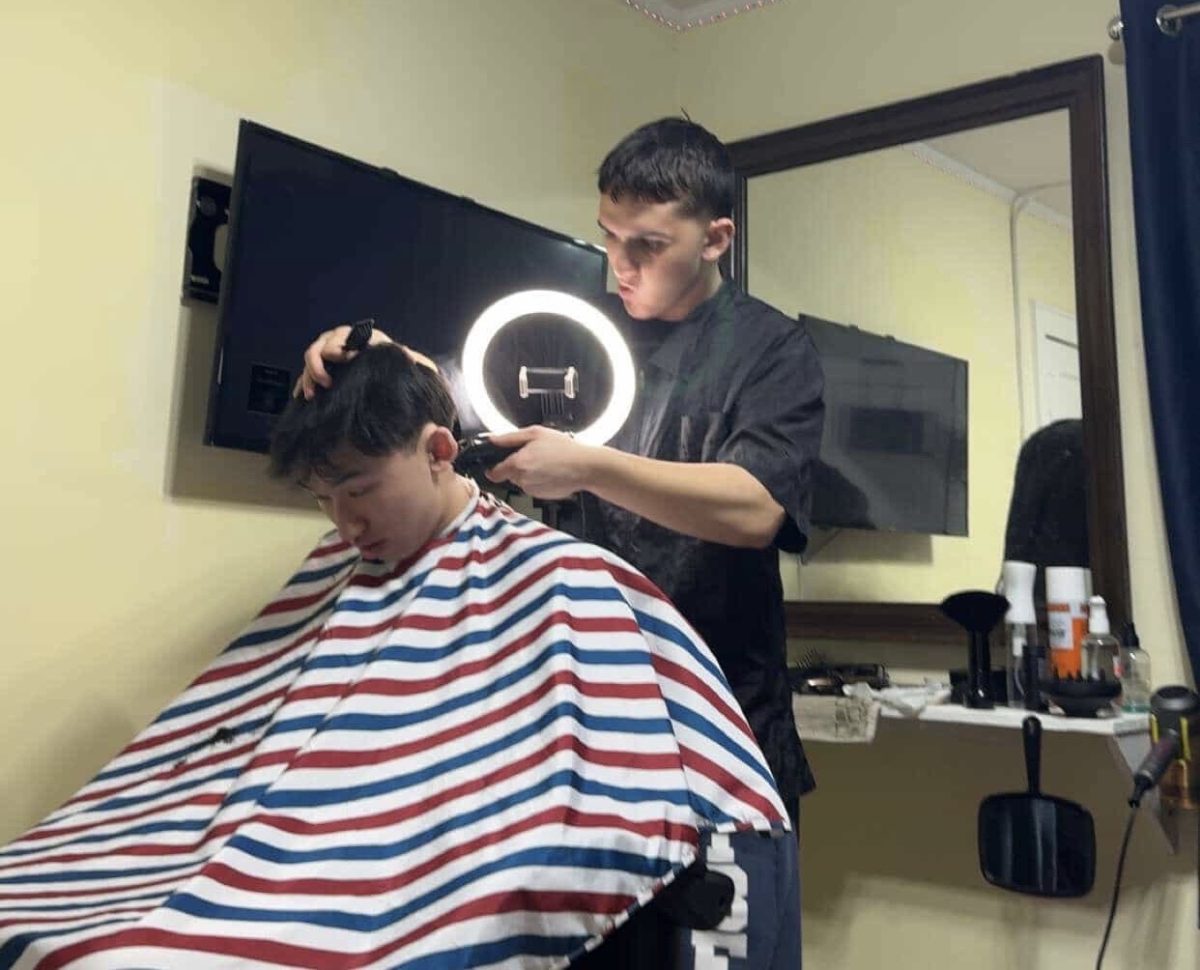By Grace Fong
The satisfaction of “accidentally” hitting a rude bystander with your ribbons. The excitement of seeing the Uber Eats car with the overpriced Bon-Chon Chicken that was delivered forty five minutes late. The stress of studying with friends at 9 pm for the 45 word vocabulary test the next day. All of these experiences contribute to the fun of Asian Culture Club. However, this year the club has had to make significant changes because of the pandemic.
The Cultural Heritage experience usually begins with students joining ACC and the acts. Under normal circumstances, ACC would usually be able to introduce each act to freshmen and other new students at the annual club fair; however, this year, many acts agreed that it was more challenging to recruit new members. In particular, groups found it challenging to recruit freshmen. Acts such as Korean Rock Band, Ribbon Dance, Lion Dance, and Taekwondo mostly had returning members and a few new upperclassmen. Although they tried to reach out to others on their social media and the first ACC Zoom meeting in early September, many groups agreed that it was difficult to actually give newcomers a preview of what they would be involved in. Elaine Lu, Taekwondo leader, said, “if you can’t actually meet them, then they don’t get the chance to know the club before they can join.”
Some acts were more successful. Korean Fan and Chinese Yo-Yo were pleasantly surprised by how easily they recruited new members. Grace Liao, the act leader for Chinese Yo-Yo, said that she has been asking mutual friends and acquaintances to join Yo-Yo since right after last year’s performance. In early August, she also started to invite freshmen who were previously in Great Neck South Middle School’s Chinese Yo-Yo act. Rachel Yoo and Samantha Weng, the leaders of Korean Fan, achieved recruitment success by reaching out to underclassmen as early as June.
The next step for all the acts were how and where to practice. Usually, club members practice after school every day in the main lobby and the courtyard. This year, most acts are practicing virtually. The biggest challenge to this method is the lag time. For example, Korean Rock Band cannot play together over Zoom because of latency. Because of this, the acts have resorted to individual learning. For J-dance, the leaders break down the performance into sections to film; each week, a new section is released for the performers to learn. Every Saturday, the act leaders have their students submit the videos in order to watch their progress. Although this isn’t the ideal method of teaching the dance, J-dance is still trying their best in order to create a performance that will match up with last year’s. Other groups, including Ribbon Dance, Korean Fan, Chinese Yo-yo, and Wushu, have been holding socially distanced practices in local parks. Since the middle of September, these groups have been practicing 2–4 hours per week. Usually at these practices, the acts will focus on the smaller movements and details instead of practicing forms in order to stay 6 feet apart from each other. Acts such as Chinese Yo-Yo believe that practicing at the park is actually more effective than being in school to practice. Junior Grace Liao, Chinese Yo-Yo Instructor, believes that in school there are too many distractions such as extra help or sports. By practicing outside of school, they are able to practice for four hours together without people having to worry about academics or other in school clubs.
While the Cultural Heritage event is being pushed back until Spring, there are still many safety precautions different acts have to maintain. Many people thought that many acts would have to cancel their performances or specific portions of their act. However, many acts have made compromises that have allowed them to keep their performances. In addition to wearing masks, many performances have to be modified to ensure social distancing. For Lion Dance, the biggest issue is being enclosed in the lion heads. Each Lion requires two people in total—one for the head, and one for the body/tail. The teachers of this act, seniors Diana Chu and Ethan Jiang, said that since being in the lions is already a violation of social distancing, so they cannot practice with them. For now, they are focusing more on the basics without the lions and teaching more of the movements. Eventually, they will allow students to work with the lions separately at home to ensure everyone’s safety. Wushu and Taekwondo also have to follow extended safety precautions. The acts’ collaboration on their well known “fight scenes” do not follow social distancing guidelines. Fight scenes require students to “fight” close up in order to ensure a realistic-looking fight. This year, Dr. Gitz agreed to allow them as long as students are willing to wear masks and gloves during the fight scenes.
One of the most important things that contributes to the experience of being in ACC is the bond you create with the other members of the acts. Each act spends so much time together that they form a tight friendship. This year, although there isn’t any ordering pizza at 6:30, roaming the halls when most students have gone home, and of course “hell week,” acts are still trying their best to create strong bonds. For example, Korean Techno tried to bring their act together by communicating constantly on their discord and playing a lot of Among Us together. A fun tradition Korean Techno has is going to the city to rent a studio for practice, so they decided to plan a day for that when Coronavirus rates are lower. Another act that was trying to form a bond was Taekwondo. Elaine Lu says it’s harder for the new students to be able to mix with the old ones, so she is planning a day out for the Taekwondo girls so they can get to know each other.
Overall, most acts feel like this situation has slightly diminished the experience of ACC; however, there are still many positives that rise from this challenge. The Ribbon Dance act leaders say that even though they don’t get to experience some things, the bond between the act members will still be there. Korean Fan also agrees that it’s not exactly the same this year. Senior Samantha Weng said, “The new people aren’t going to experience funny memories like people fighting over ordering food. You have to experience all the funny things and mistakes that happen with all the other groups in the lobby.” J-dance feels like a new lesson will rise from ACC this year. Sophomore Fiona Feng said, “ I feel like in ACC normally, dedication wasn’t as hard to implement into your daily schedule, but now you have to organize your schedule to practice on your own. And if you are dedicated to it, the performances might turn out well. Even last year dance members were still very dedicated, so this year we have to work even harder.”
Even though ACC isn’t what new members would have anticipated, there is always a new experience that rises from difficult situations. All those involved hope that this year’s ACC experience will be a truly unique one that they will learn and grow from.
Categories:
Asian Culture Club: Coping with COVID19
December 7, 2020
0
More to Discover





